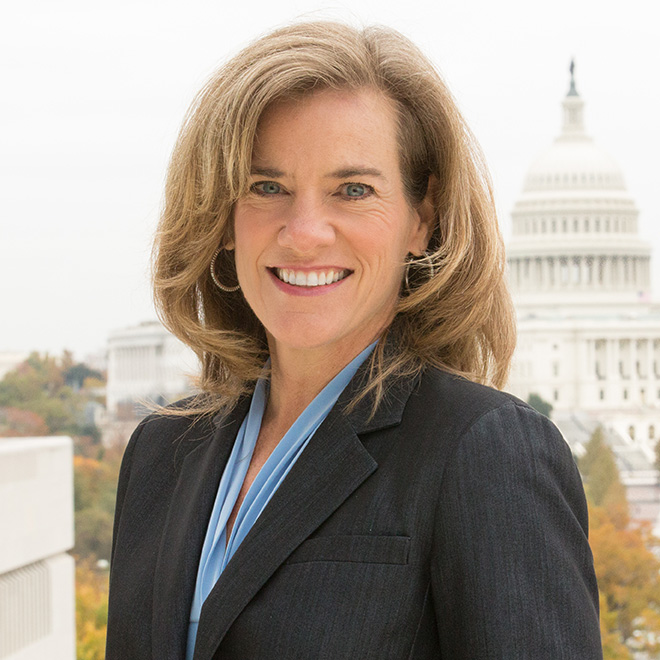
By BJC General Counsel Holly Hollman
 UPDATE: The Supreme Court released its decision on June 26, 2018. Click here to read the BJC’s statement.
UPDATE: The Supreme Court released its decision on June 26, 2018. Click here to read the BJC’s statement.
Many news accounts following oral arguments in Trump v. Hawaii suggested the U.S. Supreme Court is likely to uphold the Trump administration’s policy known as the “travel ban.” Based on our observations, I can’t argue otherwise. Regardless of the Court’s decision on the policy in its current form, the case has and should continue to influence the national conversation about religious liberty.
The Baptist Joint Committee stands firmly against stereotyping or targeting individuals or groups based on religion in ways that would deny them equal rights under the law. While religious liberty is protected differently in different contexts, the First Amendment protects against official government acts based on religious prejudice. In short, the government cannot enact laws designed to harm a religious group. We’ve often spoken out against statements by candidates and government officials, as well as enactments of law that tend to denigrate certain religions — or religion in general — in violation of this principle.
Broadly speaking, Trump v. Hawaii is about whether President Donald Trump’s proclamation on immigration, otherwise known as the third version of the “travel ban” (the first one was issued in January 2017 and immediately challenged in the courts) exceeds his presidential authority. One question the Court is reviewing is whether the proclamation should be struck as a violation of the First Amendment because the policy’s development and implementation can be traced to anti-Muslim sentiment.
I joined with more than 30 other constitutional law scholars in an amicus brief that argues that the proclamation adheres to the president’s animus-laden campaign promises rather than constitutionally legitimate reasons and rests on a rotten foundation that the president hasn’t cured. Here are a few excerpts from that brief:
“The Establishment Clause forbids officials from exercising governmental power on the basis of a desire to suppress, harm, or denigrate any particular religious sect or denomination. This limit, though narrow, is vital to religious liberty.”
“The First Amendment protects speech, but it does not allow candidates or politicians to evade accountability if their words reveal that an unconstitutional purpose motivated their official actions.”
“[H]ere, the President has repeatedly rejected, criticized, and departed from the various policy rationales presented to the courts by his unelected subordinates. It would disrespect the Office of the Presidency—and destroy lines of political and electoral accountability— for this Court to treat the President as insignificant in the issuance of his own Proclamation. His statements about its purpose must be considered authoritative.”
As evident at oral arguments, the application of the First Amendment in this context was one of many novel legal questions before the Court. In general, both Congress and the president have authority to shape immigration policy. Congress has enacted a comprehensive scheme that provides the criteria for determining who gets to come into the country as an immigrant and explicitly leaves room for presidential action that may supplement specific conditions. National security is one basis for such action.
With immigration and national security concerns at the forefront, some justices seemed dismissive of the idea that President Trump’s campaign rhetoric or other statements should weigh against a policy that on its face does not mention Muslims and in practice does not cover many Muslim countries. But, interest in the case, as reflected by the number and content of amicus briefs filed, indicates a high level of concern about the dangers of making immigration policy based on religion. The concerns were voiced from across a broad political and religious spectrum, and the attorney challenging the Trump administration made them clearly and forcefully.
The Court is expected to issue its ruling in June. Regardless of the outcome, the “travel ban” experience will continue to have an impact. The president’s embrace of anti-Muslim sentiments unified interest groups filing amicus briefs in opposition to the policy. The harshness of the political rhetoric may have served to change some views about Muslims among non-Muslims, particularly those who recognize the religious diversity of American immigrants. And, in response to public pressure and court decisions, the administration repeatedly amended its policy. Those changes demonstrate the importance of the First Amendment and the courts, as well as the power of moral outrage by the public, as bulwarks against religious discrimination.
Click to download this shareable infographic: 
This article appeared in the May/June 2018 edition of Report from the Capital. You can read a digital version of the magazine or view it as a PDF document.




